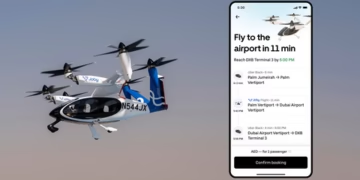Bengaluru November 06 (Karnataka News):India needs a unified national standard to assure the public about the quality and safety of treated water.For this, a unified policy is being formulated at the national level, said Dr. Vinod K. Pal, a member of the NITI Aayog.
He was speaking at the inauguration of a two-day workshop on ‘Reuse of Treated Water in India’ organised by NITI Aayog in collaboration with the Karnataka Government and the Bangalore Water Supply and Sewerage Board (BWSSB).
India’s per capita water availability is already less than 1,400 cubic meters. He warned that the country must take decisive steps towards achieving 50 percent reuse by 2030 and 100 percent reuse by 2045.
He said that currently only 11 states have a policy for the reuse of treated water.Water is not just a part of life. We need to understand that life is only possible if there is water. Water is also a resource. We need to let go of the superstition about using treated water. Groundwater levels are falling. The flow of water in rivers is also decreasing. The work of rejuvenating the Ganga river is in progress. It will be 100% complete by 2045. The use of treated water for agricultural work should be encouraged. At the same time, there is a need to formulate standards at the national level for the use of purified treated water. This is already being considered, he said.
Dr. Shalini Rajneesh, Chief Secretary, Government of Karnataka, said that in order to maintain drinking water security in Bengaluru city by 2024, it was suggested to use treated water for purposes other than drinking.
He said that 110 lakes in the city have been revitalized. Greater importance will be given to 100% treated water use and rainwater harvesting by 2028. He also said that rules related to the reuse of treated water have been implemented.
Additional Chief Secretary, Urban Development Department, Tushár Girinath said, “Bengaluru is supplying 2,225 MLD of water daily and in addition, 1,350 MLD is being treated daily through 34 Sewage Treatment Plants (STPs).” Also, with the aim of further water treatment, 12 STPs are being constructed for this. He said that STPs should be branded as resource recovery units to instill confidence in the people about the treated water.
At the beginning of the workshop, two documentary films were screened, “BWSSB: A Legacy of Vision and Service” and “A Glimpse of Water Recycling in Bangalore”.
The delegates will visit the Cubbon Park Tertiary Treatment Plant and the KC Valley Project tomorrow (November 7) as part of the workshop to witness Bengaluru’s large-scale efforts in treating and reusing water and regenerating the environment.
It is essential to treat treated water as an economic asset. BWSSB currently has a water revenue of 190 crores, which is generated through reuse, metering and systematic recycling. This revenue can be increased to Rs 1,000 crore. BWSSB needs to set up professional departments to handle water accounting and reuse.
There is a need to create awareness about water usage through women’s self-help groups.- D. Tara, Ministry of Housing and Urban Affairs.
With technology, governance, and community support, it is possible to turn every liter of treated water into wealth. We have organized this workshop with the aim of sharing information on methods of reusing treated water.- Dr. V. Rama Prasad Manohar, President, BWSSB.
Exhibition of various technologies:The workshop held several exhibitions to inform about new technologies related to water treatment and utilization.
A company called iPumpNet has developed technology to control and manage water pumps, which BWSSB has installed in four pump storages. This will allow us to know the capacity and condition of the pump sets at the right time. Furthermore, a company called Krishi Hriday has developed a new meter box-style technology for the control and management of borewells. This will instantly inform you about the water level and the health status of the motor inside via a mobile app.
A platform for many workshops-Three workshops were held on the first day of the workshop. KPMG and government advisory committee members discussed the challenges and policy implications of treated water use. Many people, including Nilachal Mishra and IAS officer Dr. Tara, presented the issue.
“Best practices at the state level,” “Water use technology and collaboration, business models, private partnerships, international experience” were discussed by BWSSB President Dr. V. Rama Prasad Manohar and others. IISc professors and experts working on water conservation shared their experiences and suggestions at the symposium.
